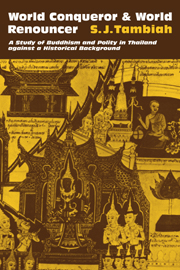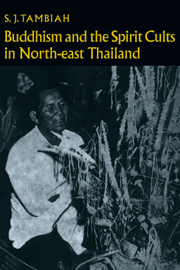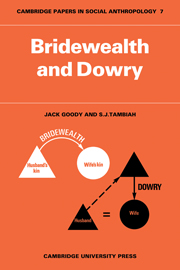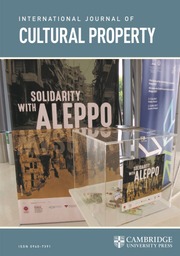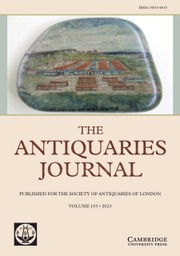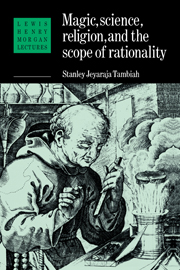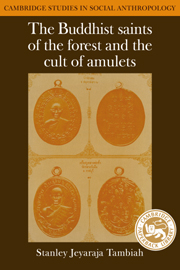World Conqueror and World Renouncer
World Conqueror and World Renouncer is the first comprehensive and authoritative work on the relationship between Buddhism and the polity (political organization) in Thailand. The book conveys the historical background necessary for full comprehension of the contemporary structural relationship between Buddhism, the sangha (monastic order), and the polity, including the historic institution of kingship. Professor Tambiah delineates the overall relationship, as postulated in early Buddhism, between the monk's otherworldly quest on one side and the this-worldly ordinating role of the monarchy on the other. He also examines the complementary and dialectical tensions that occur in this classical relationship, the king's duty to both protect and purify the sangha being a notable example.
Product details
May 2012Adobe eBook Reader
9781139239493
0 pages
0kg
This ISBN is for an eBook version which is distributed on our behalf by a third party.
Table of Contents
- Part I:
- 1. Introduction: Reconstructing a Journey
- 2. From Rajadharma (the King's "Whole Duty") to Dharmaraja (the "Righteous Ruler")
- 3. The Brahmanical Theory of Society and Kingship
- 4. The Early Buddhist Conception of World Process, Dharma, and Kingship
- 5. Asoka Maurya: The Paradigm
- 6. Thai Kingship and Polity in Historical Perspective 7. The Galactic Polity
- 8. The Kingdom of Ayutthaya: Design and Process
- 9. Asokan and Sinhalese Traditions Concerning the Purification of the Sangha
- 10. The Sangha and the Polity: From Ayutthaya to Bangkok
- 11. The Nineteenth-Century Achievements of Religion and Sangha
- Appendix to Chapter 11: The Symbolization of Monarchy in the Nineteenth Century
- 12. The Sangha Acts of 1902, 1941, and 1963
- Part II:
- 13. The Composition and Distribution of Religious Personnel: What the Figures Say
- 14. Monkhood as an Avenue of Social Mobility
- 15. Monastic Careers and Monastic Network
- Appendix to Chapter 15: Monastic Networks in Christian Europe and Thailand
- 16. Patronage of the Sangha and the Legitimation of the Polity
- 17. Reformism and Ideological Transformation Based on Tradition
- 18. Missionary Monks (Thammathud) and National Development
- Appendix to Chapter 18: The Monks' Universities
- 19. The Politics of National Development and the Symbols c Legitimacy
- 20. Dialectical Tensions, Continuities, Transformations, and the Uses of the Past

